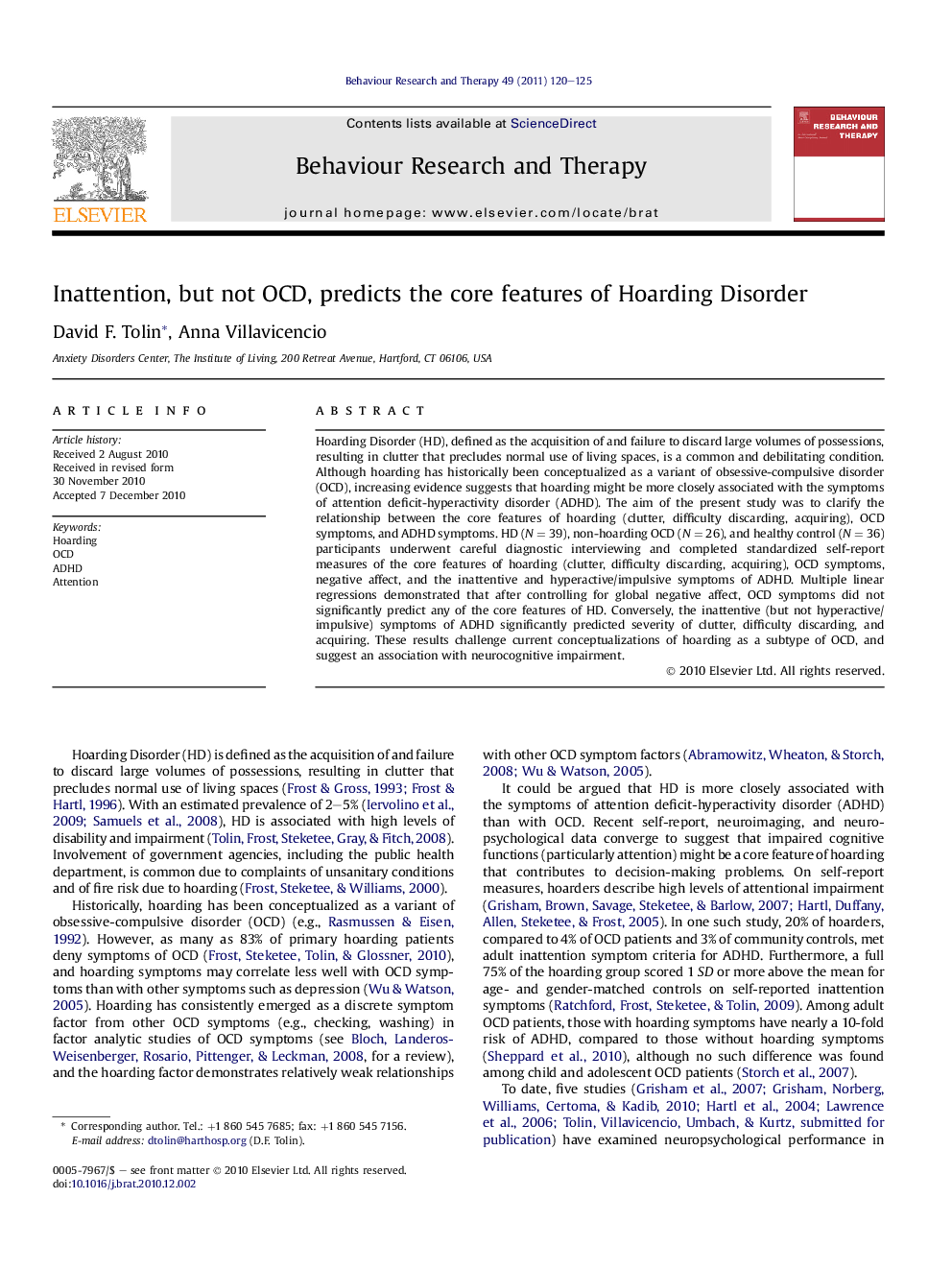| Article ID | Journal | Published Year | Pages | File Type |
|---|---|---|---|---|
| 10444628 | Behaviour Research and Therapy | 2011 | 6 Pages |
Abstract
Hoarding Disorder (HD), defined as the acquisition of and failure to discard large volumes of possessions, resulting in clutter that precludes normal use of living spaces, is a common and debilitating condition. Although hoarding has historically been conceptualized as a variant of obsessive-compulsive disorder (OCD), increasing evidence suggests that hoarding might be more closely associated with the symptoms of attention deficit-hyperactivity disorder (ADHD). The aim of the present study was to clarify the relationship between the core features of hoarding (clutter, difficulty discarding, acquiring), OCD symptoms, and ADHD symptoms. HD (NÂ =Â 39), non-hoarding OCD (NÂ =Â 26), and healthy control (NÂ =Â 36) participants underwent careful diagnostic interviewing and completed standardized self-report measures of the core features of hoarding (clutter, difficulty discarding, acquiring), OCD symptoms, negative affect, and the inattentive and hyperactive/impulsive symptoms of ADHD. Multiple linear regressions demonstrated that after controlling for global negative affect, OCD symptoms did not significantly predict any of the core features of HD. Conversely, the inattentive (but not hyperactive/impulsive) symptoms of ADHD significantly predicted severity of clutter, difficulty discarding, and acquiring. These results challenge current conceptualizations of hoarding as a subtype of OCD, and suggest an association with neurocognitive impairment.
Related Topics
Health Sciences
Medicine and Dentistry
Psychiatry and Mental Health
Authors
David F. Tolin, Anna Villavicencio,
